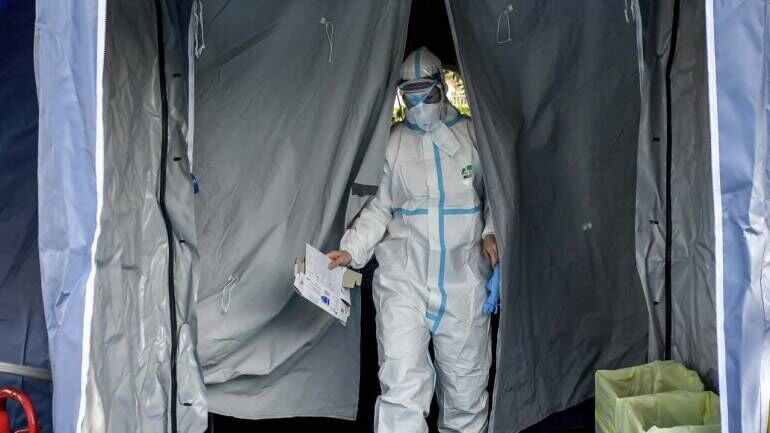Rwanda has so far tested more than 1200 people, with only 11 turning out positive.
The first positive case was recorded on Saturday, March 14, 2020. Ever since, more positive cases have been reported except for March 19, where no new case was reported. 900 people had been tested before the first positive case was recorded.
Amidst Coronavirus outbreak, samples are collected from different key entry points of the country as well as hospitals and then sent to the Kigali-based National Reference Laboratory which conducts the testing.
According to the officials, the focus is put on people believed to be at a high risk of being infected.
Dr. Jean Baptiste Mazarati, the Head of Biomedical Services at the RBC, explained the process in an interview with the public broadcaster.
“People thought to be at high risk of infection of COVID-19 at the airport or borders are taken to a nearby hospital and accommodated in specialized chambers. From there, tests are taken and brought to the National Reference Laboratory for analysis, a process which takes 4-5 hours,” he said.
Dr. Mazarati also revealed that since the first confirmed case in Rwanda, the laboratory analyses 20-30 tests a day.
“Since Friday-when Rwanda confirmed its first case of coronavirus- over 150 people have been tested, and our laboratory receives 20-30 tests per day from different hospitals countrywide,” said Dr. Mazarati adding that the facility has analyzed over 1200 samples.
How samples are collected
Using real-time reverse transcription-polymerase chain reaction (rRT-PCR) whose results can be available within hours to 2 days, the tests can be done on respiratory samples.
“We take samples from the nose (nostrils) and the throat, and from there we can proceed with the tests for Coronavirus,” explained Esperance Umumararungu, Director of Nucleic Acid Testing Laboratory Unit at RBC.
So far, Rwanda still has 11 confirmed cases of coronavirus.
The Laboratory has the capacity to operate 24 hours.
Preventive measures against Coronavirus
The best way to curb the virus spread, according to WHO, is to avoid shaking hands, avoid close contact (less than 1 meter) with people who are unwell, wash hands regularly with soap and clean water ( for at least 40 sec) and use alcohol-based hand sanitizer regularly where hand washing is not applicable.
It’s also advised to cover the nose and mouth with a disposable tissue or flexed elbow when coughing or sneezing.
According to WHO, people may experience cough, fever, tiredness, and difficulty breathing (severe cases) as symptoms
